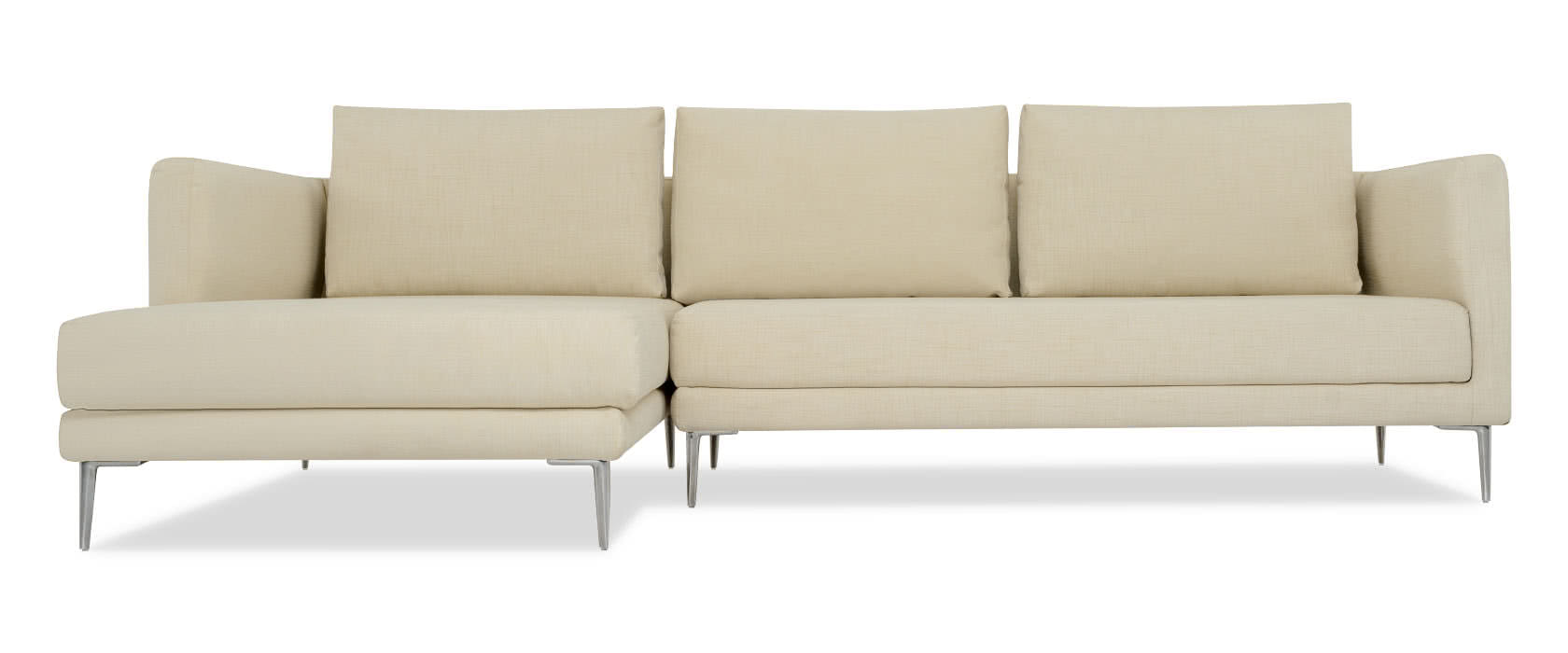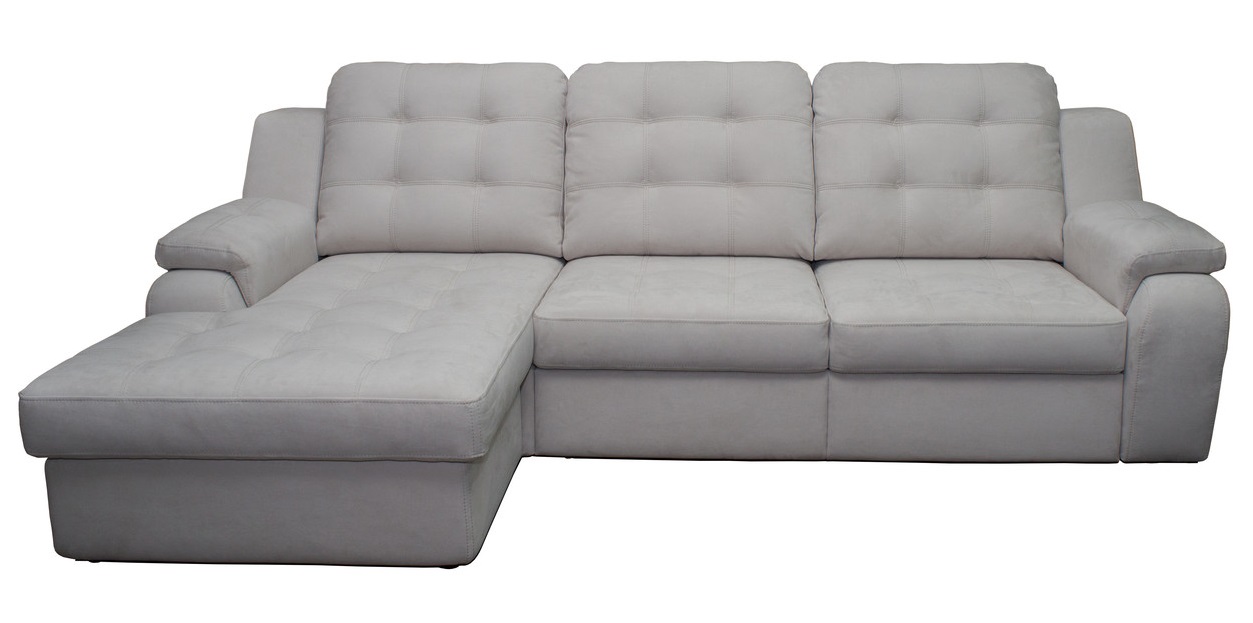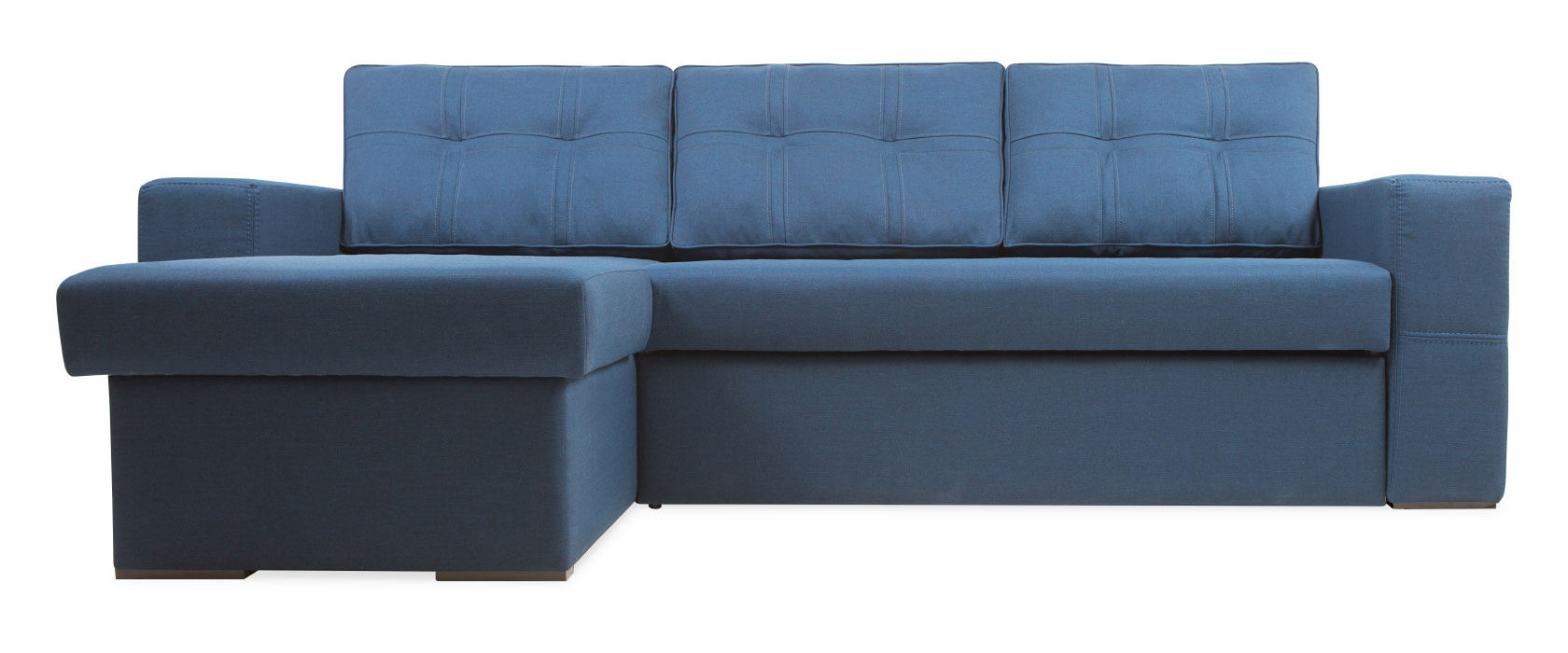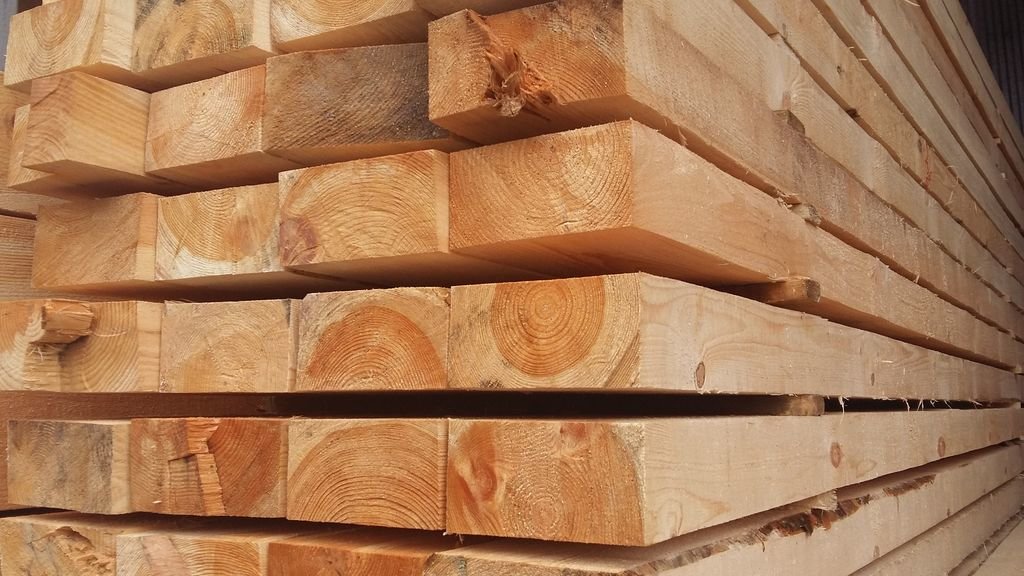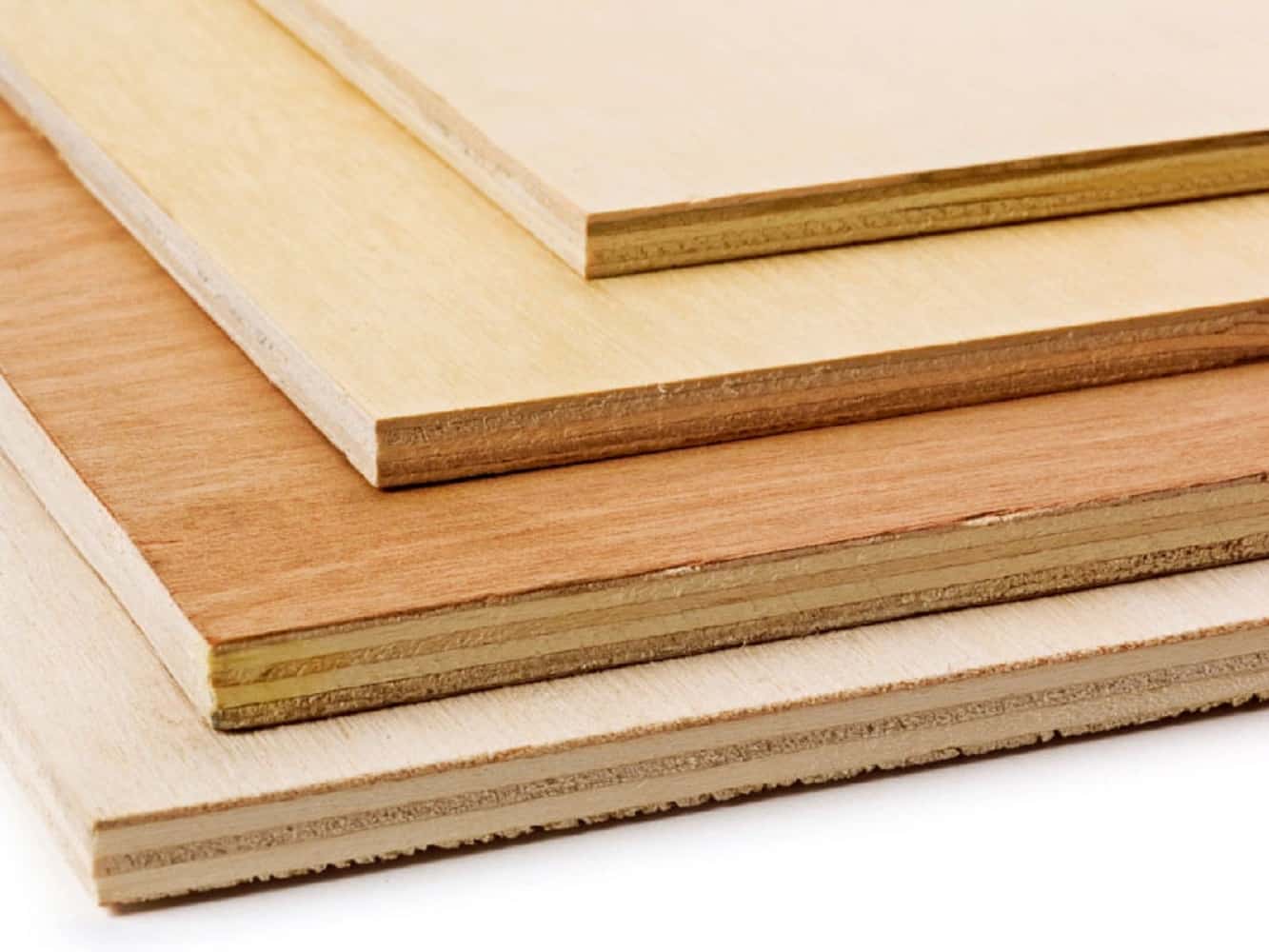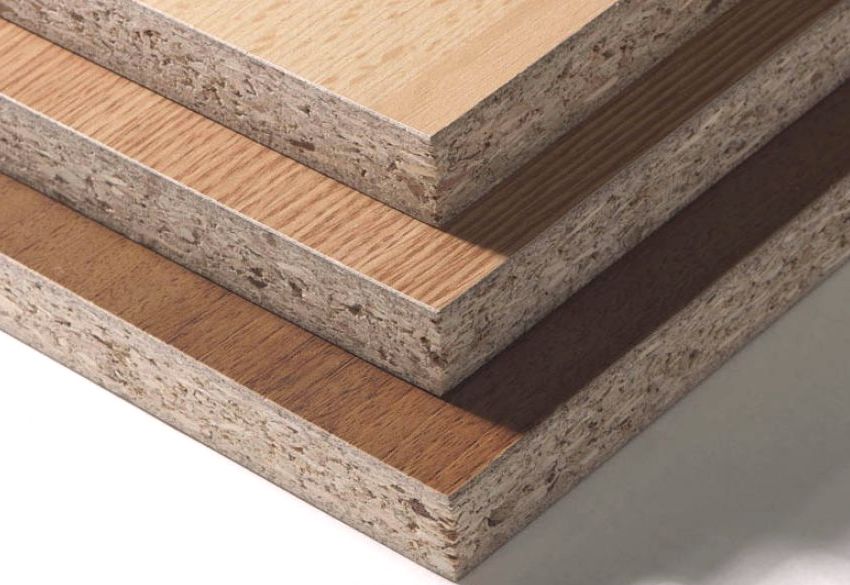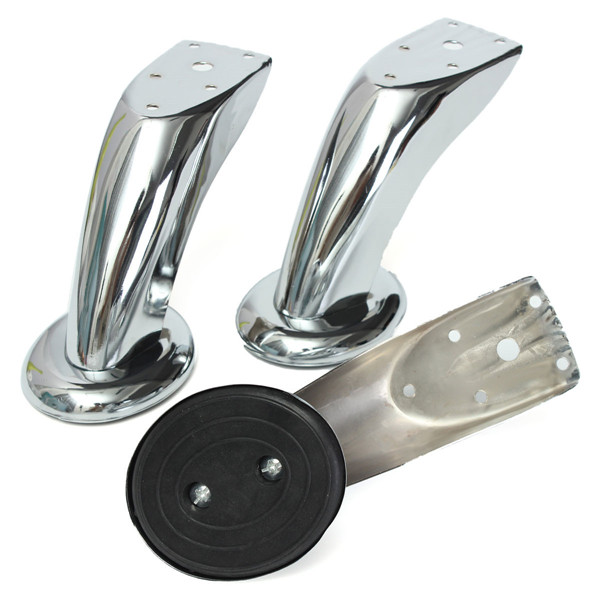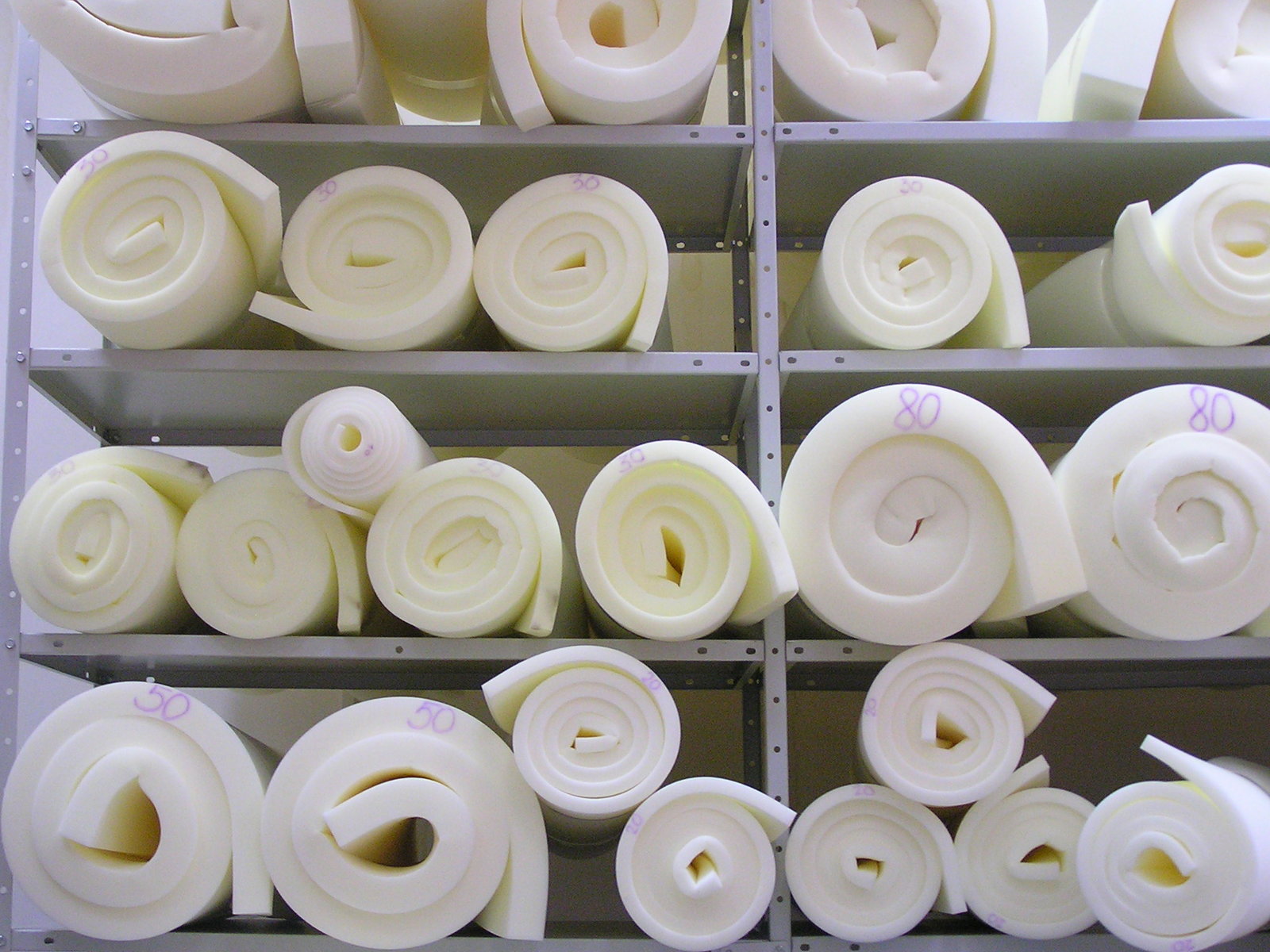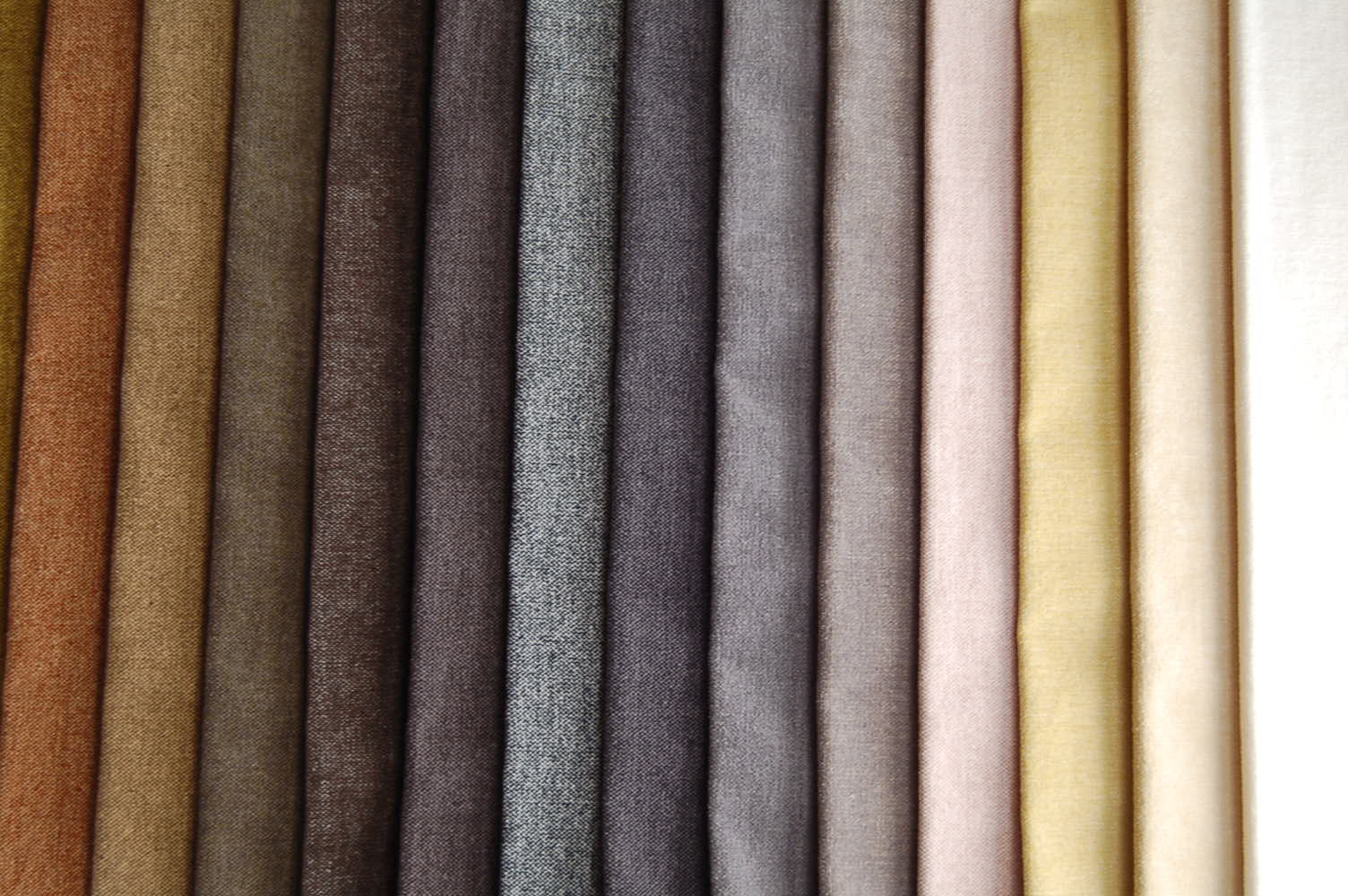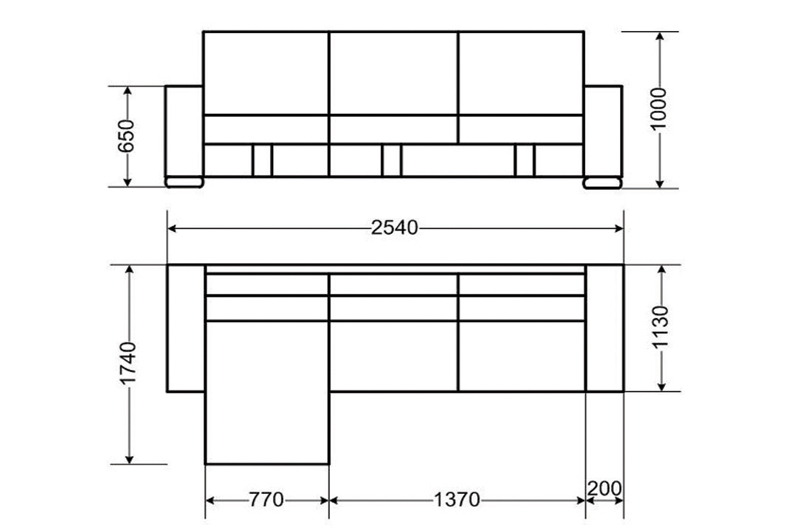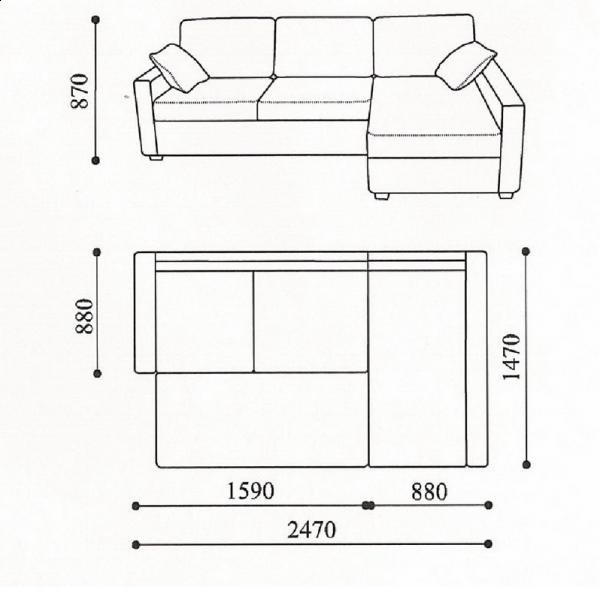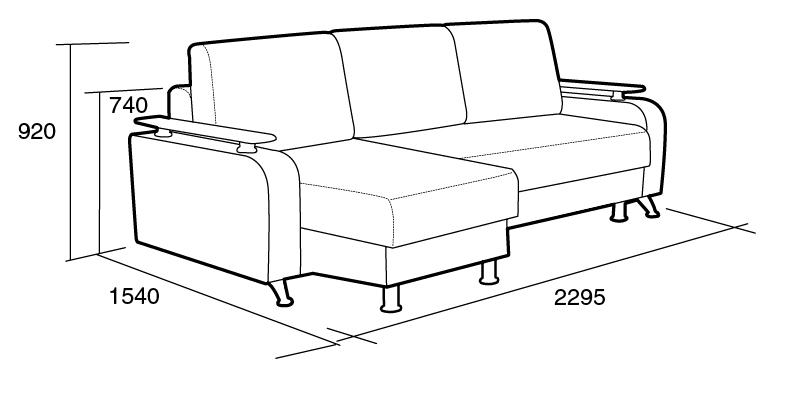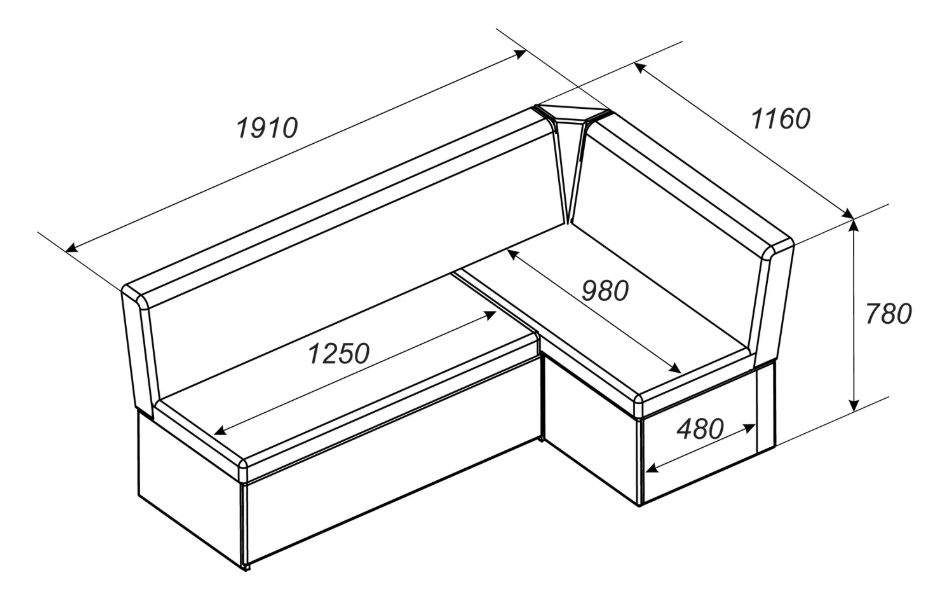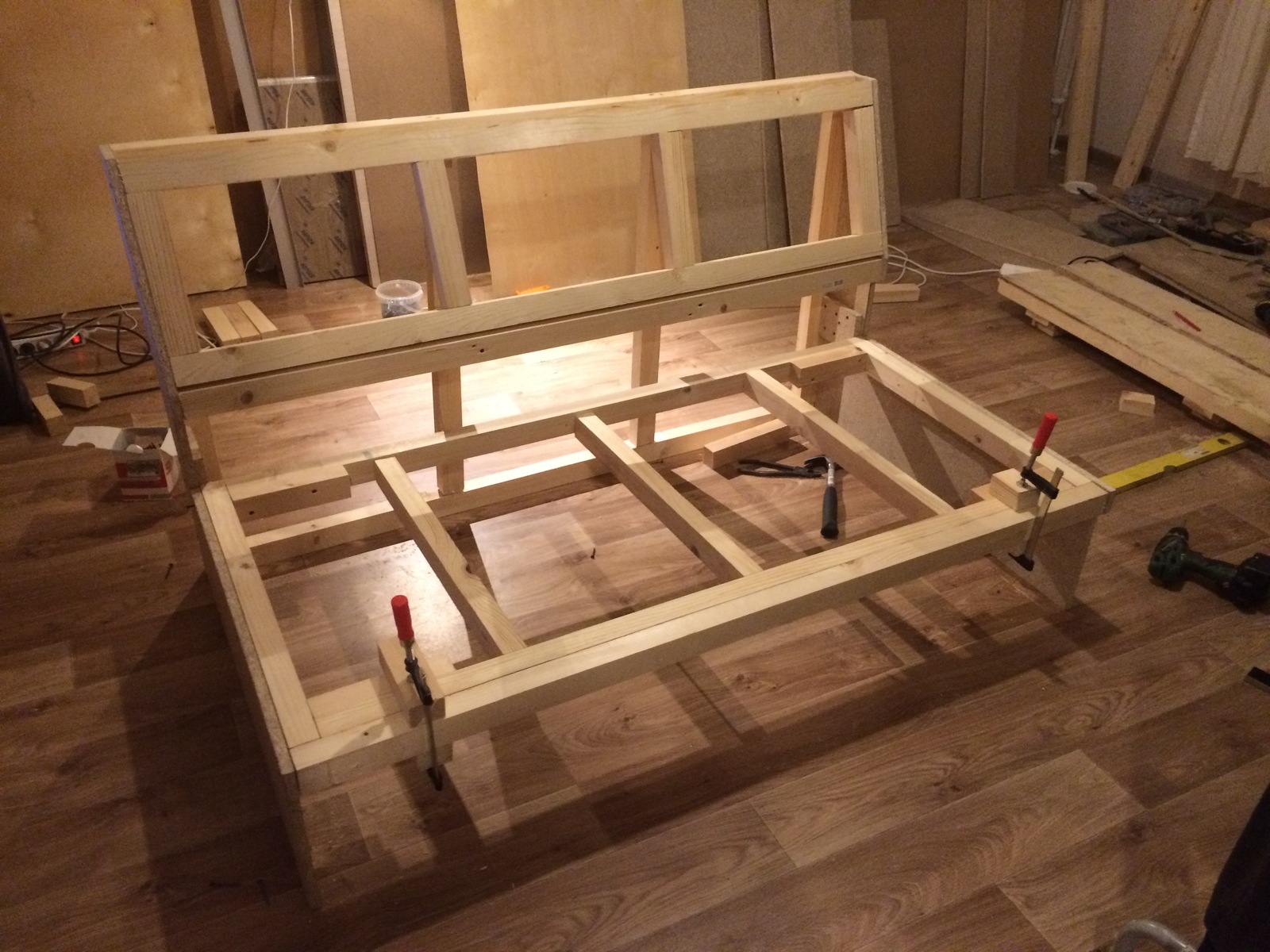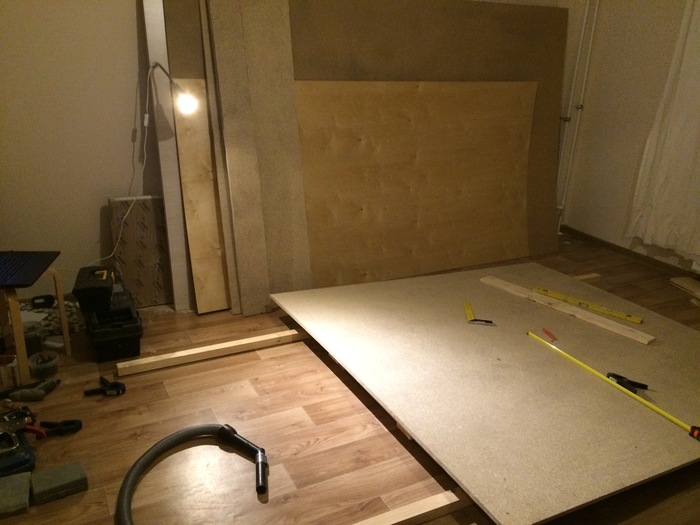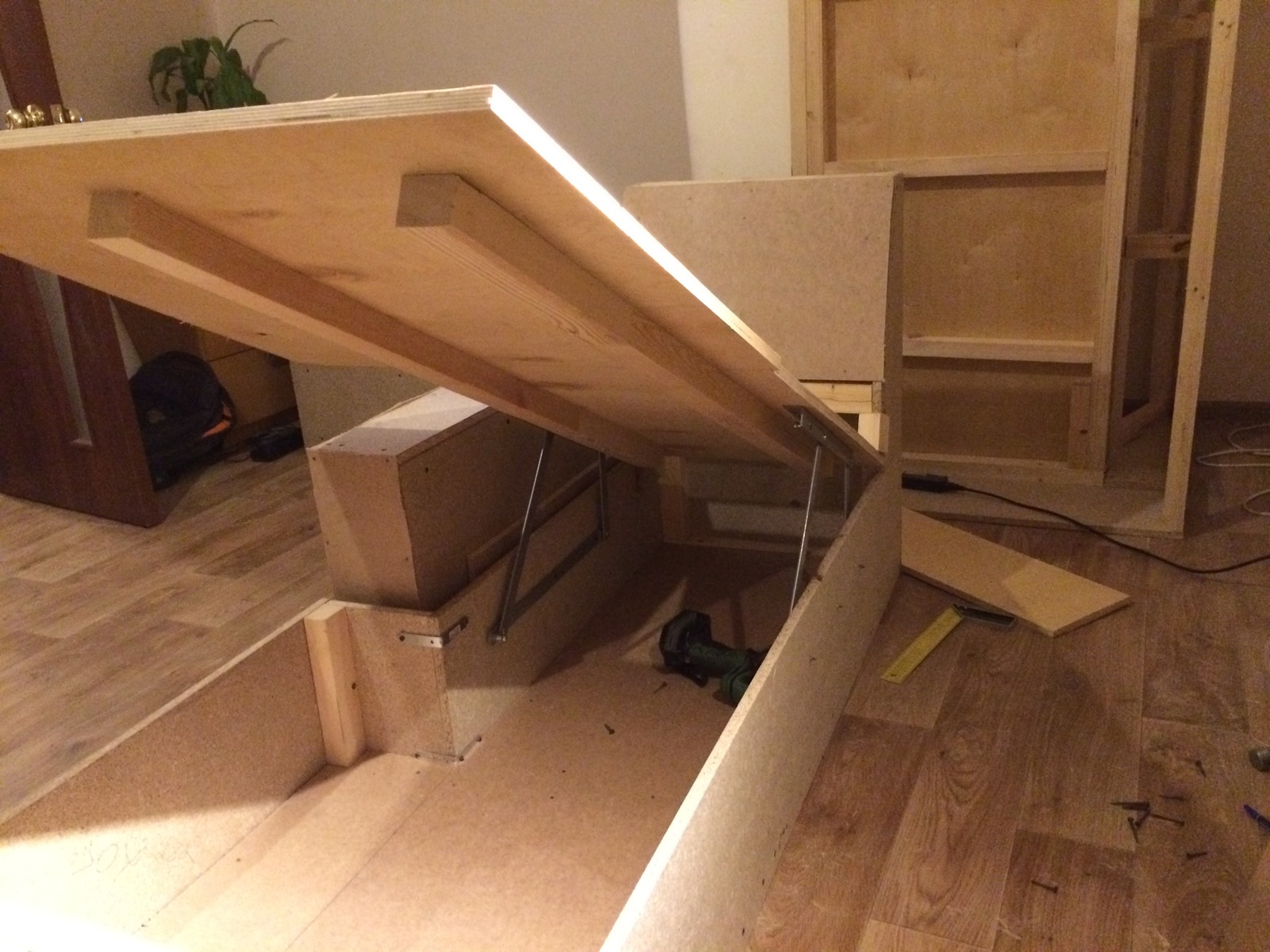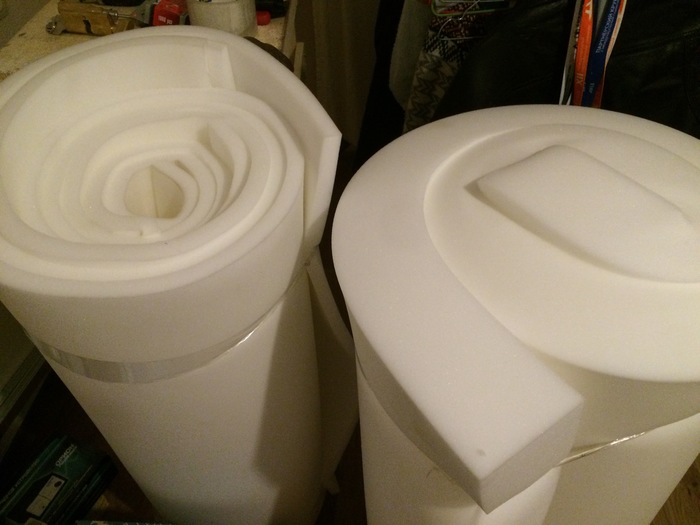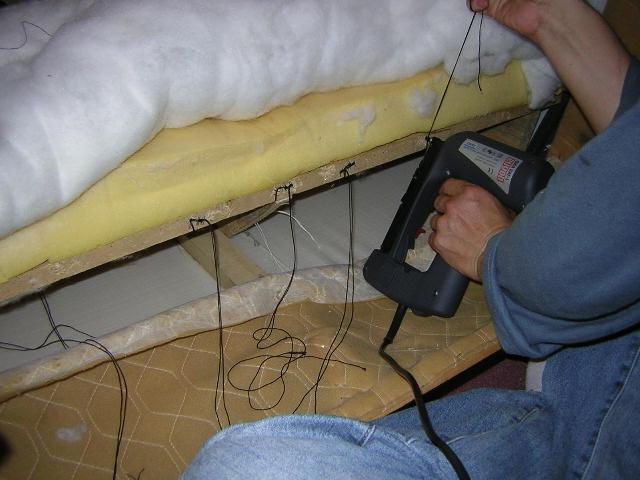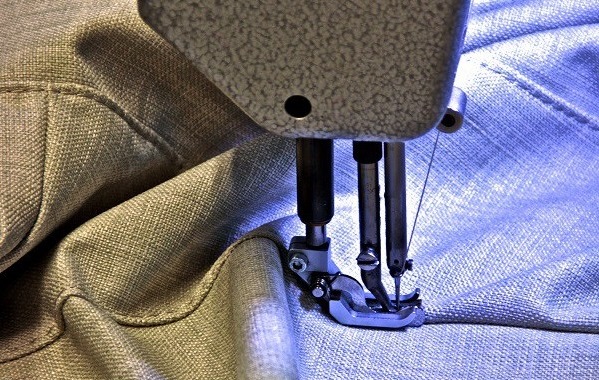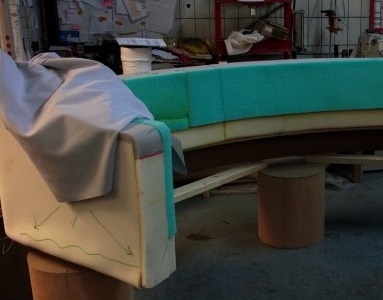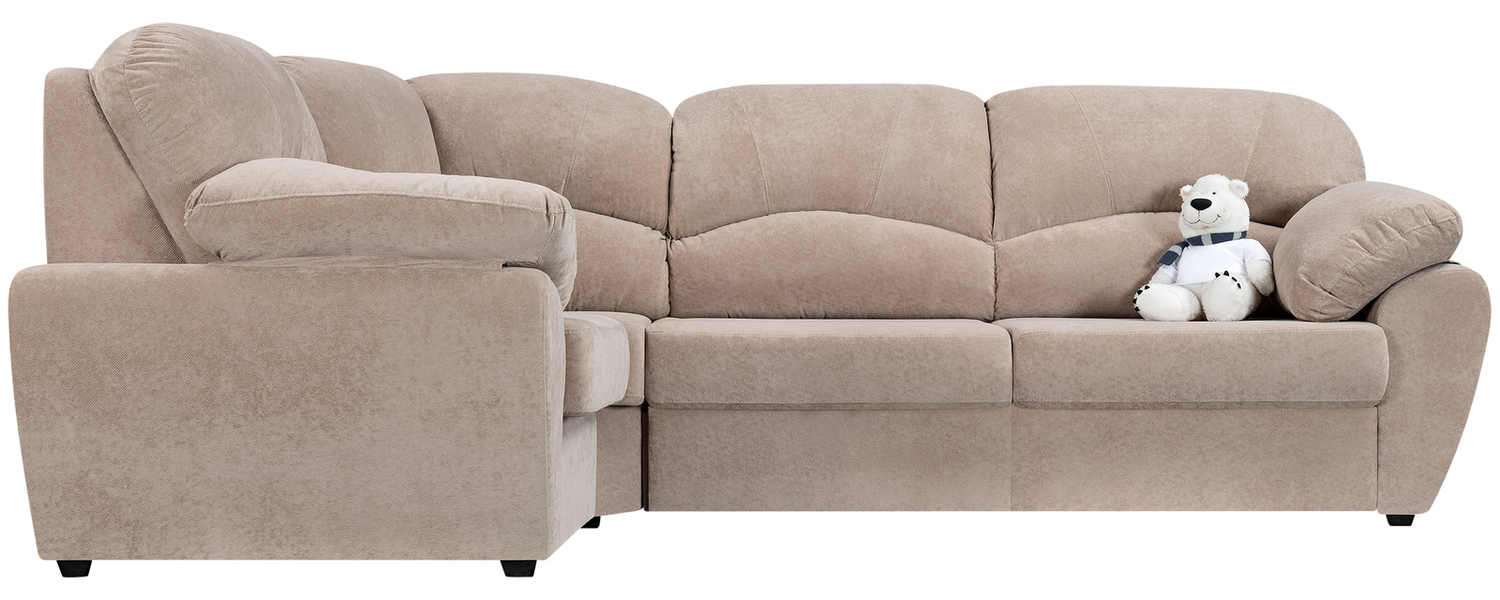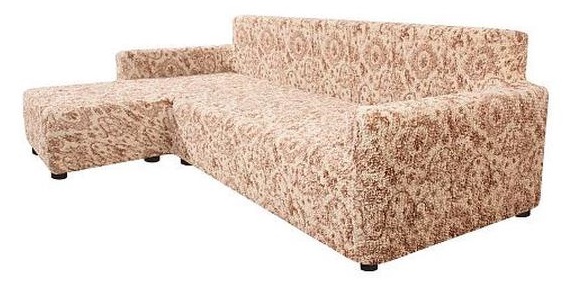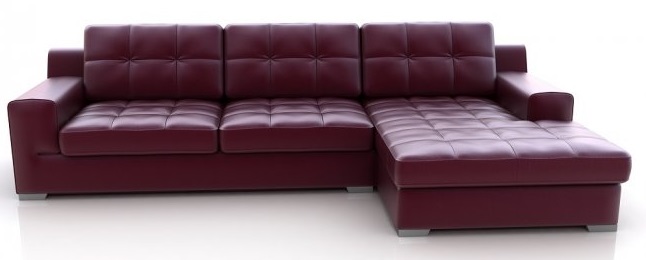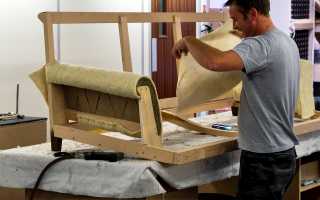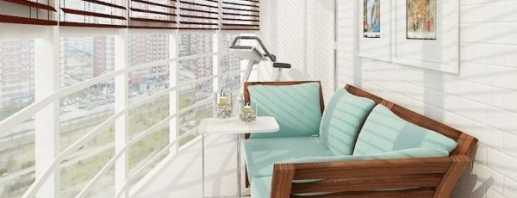Instructions for creating a do-it-yourself corner sofa, drawings and diagrams
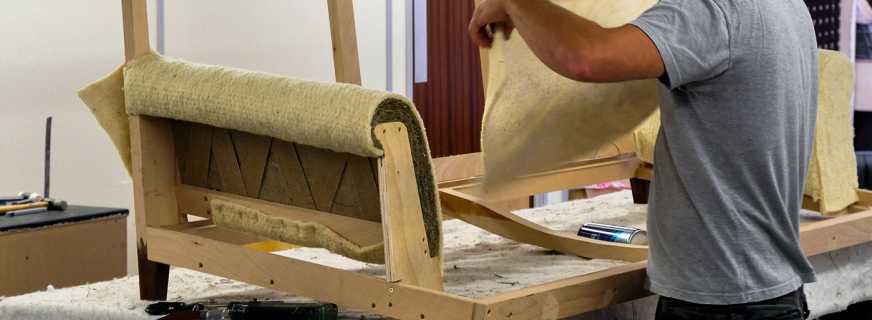
Correctly equip a recreation area in a small living space will help furniture of angular construction. It fits perfectly into the geometry of the room, preserves the maximum useful area, providing enough space for guests. You can save money on buying furniture of this configuration if you assemble an angular sofa with your own hands, while demonstrating not only the skills to work with various materials, but also the designer’s abilities. The main thing is to be extremely careful in work, not to rush, and the result will please with beauty, durability.
Content
Benefits of DIY
Assembling a corner sofa with your own hands, if you have the appropriate tools, materials, will not cause difficulties even for beginners. Such upholstered furniture will help to zone the space of the room. Equipped with roomy drawers, angular sofas can accommodate many household items.
Thinking about whether it is worth spending time looking for the right model in the store or is it easier to build a sofa with your own hands, we pay attention to the following points:
- Furniture assembled with one's own hand always fits into the interior of the room, ideally fits the dimensions;
- the choice of upholstery colors does not depend on the range provided by the manufacturer;
- having independently made a soft corner, it is possible to minimize expenses;
- Assembling a kitchen corner sofa with your own hands, you can personally control the quality of the product, so as not to have doubts about its strength, durability.
The main plus of assembling a soft corner sofa with your own hands is aesthetic pleasure, a sense of pride from the work done. In the production process, you can feel like a real designer and acquire useful skills. Enthusiastic reviews of others will enhance positive emotions.
Materials and Tools
To save time and money, a detailed diagram of the corner sofa will help. It is also recommended to make a list of the necessary materials and tools in advance. In the process of creating furniture you may need:
- coniferous timber (used for the frame);
- plywood (preferably birch) is needed for covering the base;
- Fiberboard is useful at the stage of bottom installation and assembly of storage boxes;
- laminated particleboard is most often used for the manufacture of armrests;
- soft materials (foam rubber or synthetic winterizer) are indispensable when stuffing the back of a sofa or pillows;
- fabrics for upholstery (dense fabrics impregnated with special water-repellent and anti-pollution compositions);
- fasteners (angles, screws, nails);
- sliding mechanisms for drawers;
- furniture legs (it is more convenient to use elements on castors);
- consumables (threads, glue).
One of the important points in the manufacture of a corner sofa with your own hands is the correct selection of the necessary tools:
- saw - for cutting large wooden elements;
- a screwdriver, without which it is very difficult to quickly assemble any design;
- sewing machine (preferably electric) - for sewing covers;
- furniture stapler, which allows you to firmly fix the fabric in the right places.
Depending on the complexity of the design, the minimum list of necessary devices can be replenished in the process.
Drawings and schemes
Properly made drawings and assembly diagrams of a corner sofa do it yourself determine the quality of the final result. Sketches should be extremely simple and understandable. The basic principle is to describe the size and location of all the details of future furniture. After the drawing of the future soft corner is drawn, a detailed layout of all the fixtures, reinforcing parts, partitions, and, if necessary, drawers is painted.
To fulfill all correctly, some recommendations of experts will help:
- choosing the dimensions of the furniture, it is important to measure in advance the place where it will be installed;
- first of all, a sketch is drawn, on which the length of the two halves of the sofa, its depth and the height of the backrest are necessarily indicated (this parameter can be arbitrary);
- the width of the sofa frame is calculated as the difference between the total length of the two halves and the depth.
The main points that are taken into account when creating the drawing of the sofa:
- back angle;
- dimensions of the entire structure and its individual parts;
- the need to install folding mechanisms;
- the need for arrangement of storage compartments;
- height of the sofa legs.
A secret from a professional: for the convenience of reading drawings and diagrams, when creating them, it is necessary to use different colors for each material.
For example, the base of the timber is shaded with yellow, the surface of the chipboard with gray, the upholstery with foam rubber is pink. The scheme of the direction of the twisting of the screws is drawn with red arrows. This will help you quickly navigate and significantly reduce time costs.
Step-by-step manufacturing instructions
Let's consider in stages how to make a corner sofa with your own hands. In accordance with the previously drawn diagram, the details should be numbered and laid out as they are put into operation. The smallest elements must be set aside separately from large parts. Sawing timber, fiberboard and particleboard panels can be done independently, but it is much easier and faster to order work from professionals. Assembly begins precisely with large parts, gradually building up small elements on the basis.
All components are interconnected with screws. To strengthen the strength, each part is first glued, and only then two parts are pulled together.
Wireframing
The assembly of the sofa begins with the creation of a frame made of timber. Two long and two short blanks are connected into a rectangle. After the beam is fastened with self-tapping screws, metal corners are attached at the corners. In the center of the back, additional transverse supports are fixed. Thus, the strength of the base of the sofa is achieved.
The bottom of the corner sofa box is sewn up with a sheet of fiberboard of the appropriate size. To fix the material, use special small furniture nails or a stapler with staples (which is much simpler, faster). By the same principle, the second half and the corner insert are made. After all three parts of the corner sofa base are assembled, they are fastened together by bolts, nuts.
The washer laid in front of the nut will help protect the wood from damage by metal fasteners.
Next, we proceed to create the back frame. To do this, you need six bars, the same size, with a slice at an angle relative to the seat level. The skeleton of the structural element is assembled similarly to the base frame.It is important that all parts are mirrored to the base elements of the lower part. The backrest frame is fastened at the junction of the timber in the lower part and in the middle. The finished piece of furniture is screwed with screws, after which the facade is closed, cut to size, with a sheet of chipboard or plywood. The top end is covered with a wooden blank cut at an angle.
Further, the seat hinges are fixed to the frame (at the rate of three pieces for each element). The hinges are fixed with screws at the joints of the side board and the cross-timber. Fiberboard sheets are fixed on them, which in the future will become the basis for soft folding seats. The interior of the sofa will be a convenient storage place for various household items. The final step in the assembly of the frame is the lining of the fiberboard of the rear part and the installation of furniture legs along the perimeter of the corner sofa.
Stuffing with foam rubber
It’s not difficult to upholster the frame of an angular sofa if you clearly follow the following recommendations:
- the thickness of the foam for the back and seat should be greater than for the armrests (at least 10 cm);
- Before cutting carefully taken measurements;
- in order not to get confused, it is better to immediately glue the cut-out part from foam rubber to the right place (we use ordinary PVA glue);
- to give the desired bend, the shape of the soft part can be cut off the thickness of the foam in certain areas;
- if you want to make a beautiful back bend, you can use twine and small pieces of foam, laying soft material in the right places and clamping it with twine, forming the necessary relief;
- Before the upholstery stage, it is better to cover the foam rubber with a layer of agrotextile.
No need to throw away scraps of foam. From them, small-sized pieces of soft skin that are suitable in size can be cut.
Upholstery
The pattern of covers on the corner sofa with your own hands consists of individual elements - for the upholstery of seats, side walls, facade, back. Most often, collecting the corner sofa for the kitchen or living room with your own hands, use the following fabrics:
- Gunny is a very strong matter, resistant to abrasion and pollution, allowing you to create a surprisingly pleasant to the touch, soft surface. An indisputable advantage is its durability. Having upholstered furniture with such a fabric, you can forget about changing covers for many years. Gunny will report a high density indicator, holds its shape well, does not crease.
- Cotton fabrics attract naturalness. They allow moisture and air to pass, are distinguished by the brightness of colors. But choosing such covers for a corner sofa, you must be prepared for their frequent replacement. They quickly become unusable, wiped, lose their color. If the corner sofa is going for the kitchen, it is better to refuse natural fabrics of this kind.
- Flock is a good option. Delicate, velvet to the touch fabric is distinguished by practicality due to the nylon and nylon threads in the composition, it is resistant to pollution, exposure to sunlight. Assembling a sofa into the kitchen with your own hands with upholstery from the flock, you can be sure that even after a couple of years the covers will look the same as on the first day.
- Leather is an expensive material that allows you to create very beautiful, practical furniture. Leather covers on a corner sofa is not only a way to maintain the original appearance for as long as possible (they do not fade, do not wear out, are easy to clean), but also the opportunity to give the furniture elegance.
By measuring the sofa, we make a pattern on paper. Redraw the pattern on the fabric and cut out the details (with seam allowance). So that the appearance of the upholstery is neat, the textile for the covers is well ironed in advance. The cut material is thrown onto the foam upholstery and fixed with a stapler. For lovers of comfort, coziness, do-it-yourself corner folding sofa can be supplemented with soft pillows sewn from the same fabric as the main upholstery.
So that the edge of the material does not open and stretch under the metal brackets, it is additionally reinforced with a thin strip of felt.
A corner sofa is a godsend for small rooms. Its versatility allows you to install the product in almost any interior. Furniture created by one’s own hands not only successfully fits into a limited area, but is also the pride of the master, a manifestation of his design abilities.
Video



